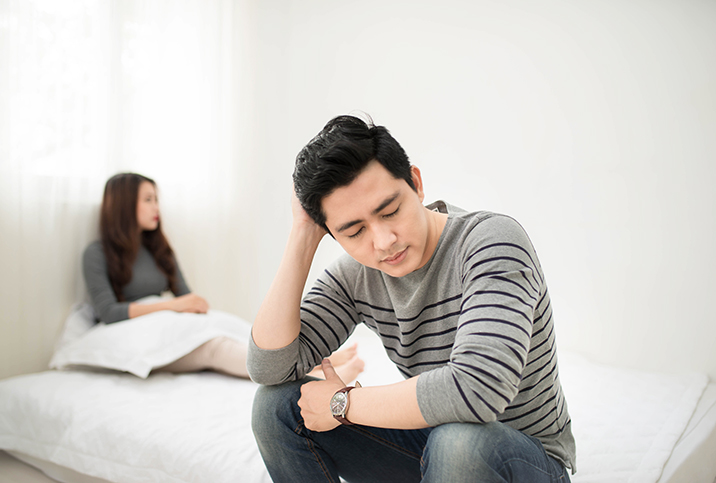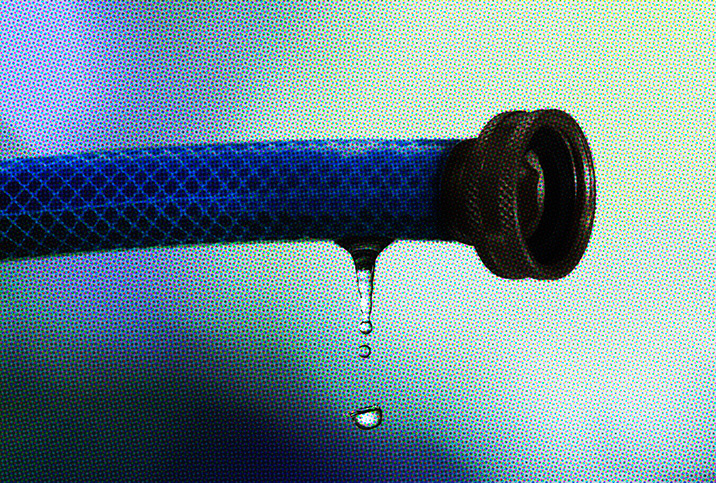Hypospadias Affects Everyday Life—But It Can Be Managed

Affecting about 1 out of every 200 births, hypospadias is a birth defect where the opening of the urethra isn't located at the tip of the penis. While this can certainly make urination a challenge, the condition also has numerous effects on everyday life. Find out how you can deal with all the ramifications of this relatively rare condition.
Problems with urination
Perhaps the foremost problem found in men with hypospadias involves urination. Spraying urine is common because the urethral opening is located on the underside of the penis or where the scrotum meets the shaft.
The obvious solution to this problem is sitting down to pee, but you shouldn't feel emasculated. Not only is sitting more comfortable but sitting down to urinate can ensure that your aim is never called into question.
Impaired ejaculation
Men with hypospadias may have problems with ejaculation. Retrograde ejaculation, which occurs when semen travels backward and enters the bladder instead of being propelled through the urethral opening, is typical. Most doctors prescribe drugs, including pseudoephedrine, ephedrine and phenylephrine, for this condition.
Another issue arising from hypospadias is premature ejaculation. While the actual correlation between hypospadias and premature ejaculation isn't entirely understood, men should know that this is a common side effect, even in individuals who have undergone corrective surgery for hypospadias. Discussing the issue with your partner is a straightforward solution, while gels, creams or wipes containing benzocaine may help you stave off premature ejaculation.
Chordee and uncomfortable erections
Chordee, or downward curve of the penis, can be related to hypospadias or can occur in men without hypospadias. Men with chordee may experience uncomfortable erections, an inability to maintain an erection or discomfort during sexual intercourse or foreplay.
Although mild cases of chordee as a result of hypospadias may not affect sex, more extreme cases can require surgery for both children and adults. Due to the variance of severity, a consultation with your doctor is highly advised.
Psychological effects
Even if your hypospadias is physically manageable, psychological effects can manifest themselves in various ways. Feelings of general and sexual inadequacy, as well as fear of rejection by a sexual partner, can overwhelm your thoughts. If rejection occurs, depression, anxiety and socially avoidant behavior can impair your intimate relationships.
The key to overcoming the psychological effects of hypospadias centers on communication. Remember that this birth defect is more common than you think, and being open with your physician and partner can give you a sense of normalcy. Don't be afraid to discuss your condition with others as a way to lessen the negative psychological effects.
Fear of sexual intimacy
Although fear of sexual intimacy is a widespread psychological effect in the hypospadias community, the reasoning may stem from more than just uncomfortable erections or premature ejaculation.
Men with hypospadias may be dissatisfied with the appearance of their penis for several reasons. For example, some men have a "hooded" appearance to the penis because the underside of the foreskin doesn't fully develop. In this situation, you only need to remember that every penis has a bit of character to it; don't think that yours is any different.
Undescended testicle
About 8 percent of men with hypospadias have an undescended testicle. Although an undescended testicle may not have any lingering effects other than aesthetics, it's been linked to an increase in infertility, testicular torsion and other common testicle issues.
Thanks to advances in treatment, adults with this condition can have corrective surgery known as orchiopexy. This procedure brings the testicle down into the scrotum, and while it won't improve fertility, the appearance of the testicle will provide a boost in confidence.
Don't suffer in silence
Despite the real complications as well as the negative connotations surrounding hypospadias, it's a treatable condition that men shouldn't suffer in solitude. By opening up communication with your partner and your doctor, you can manage the condition, lead a vigorous sex life and overcome stigma and psychological stress.


















